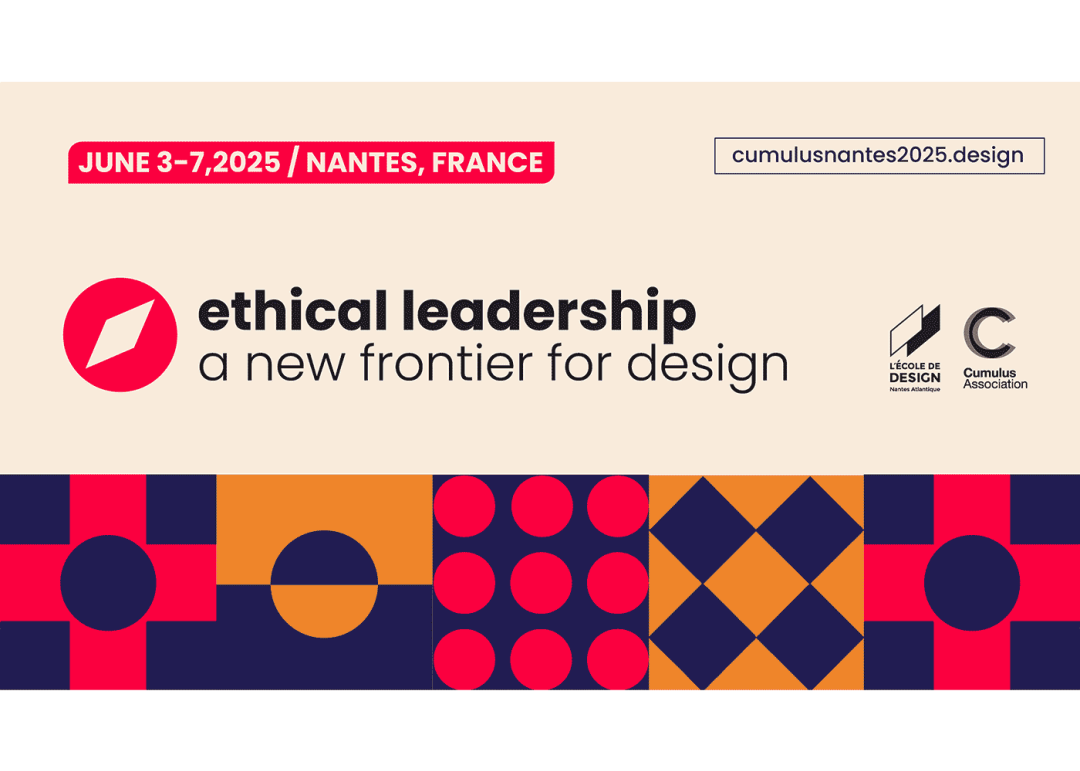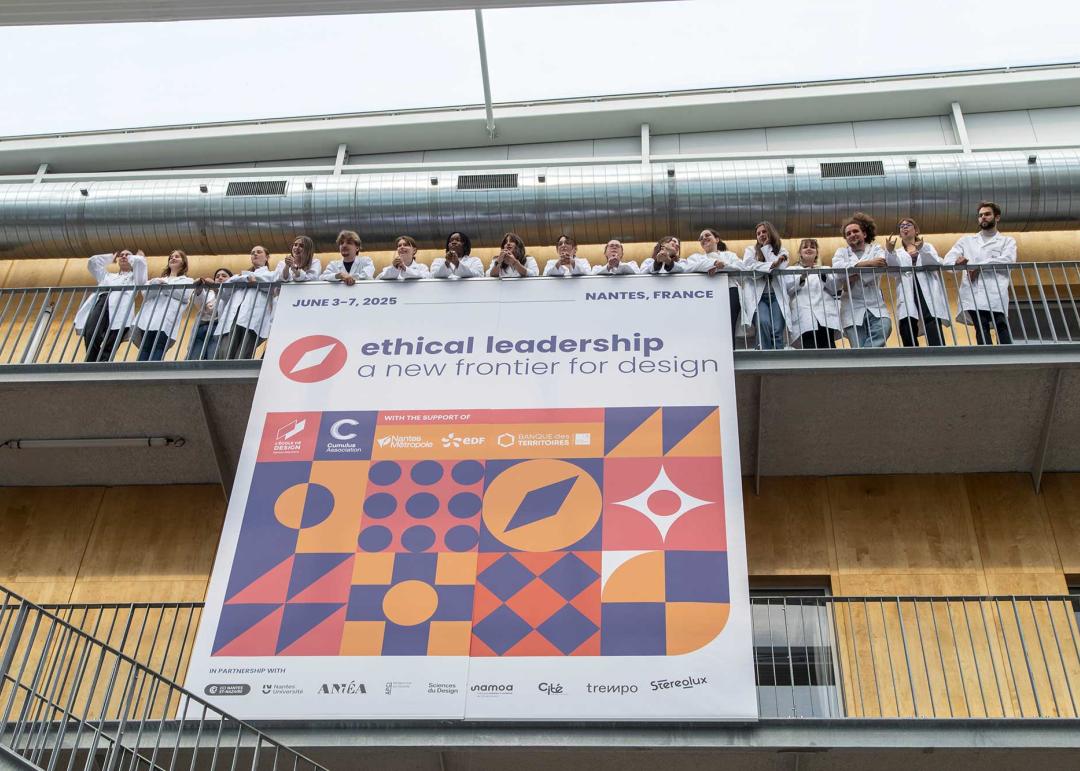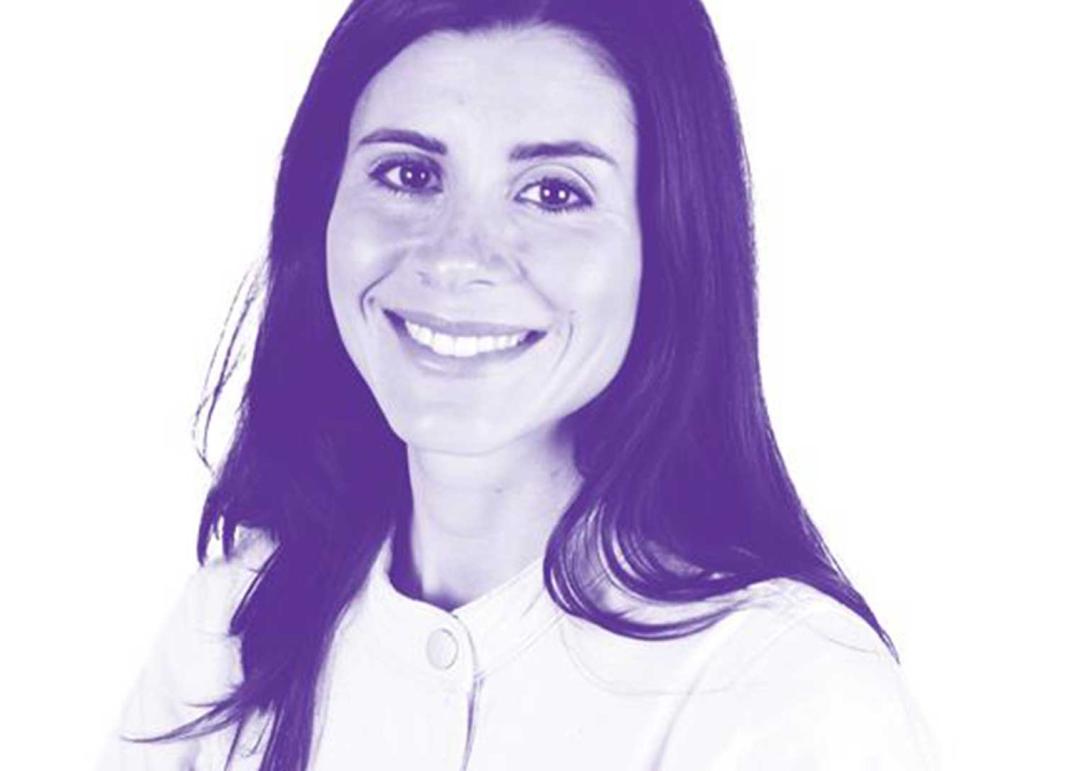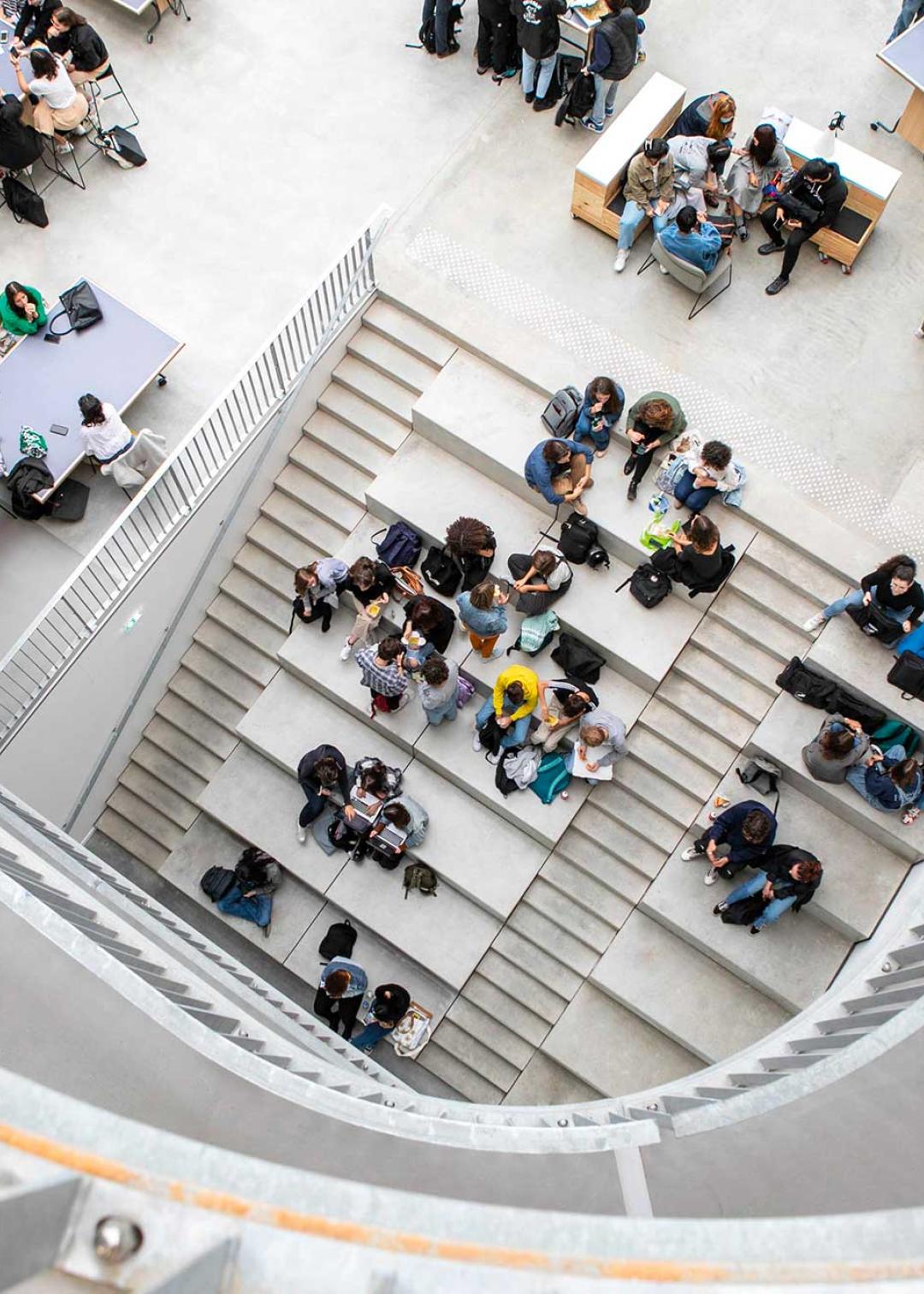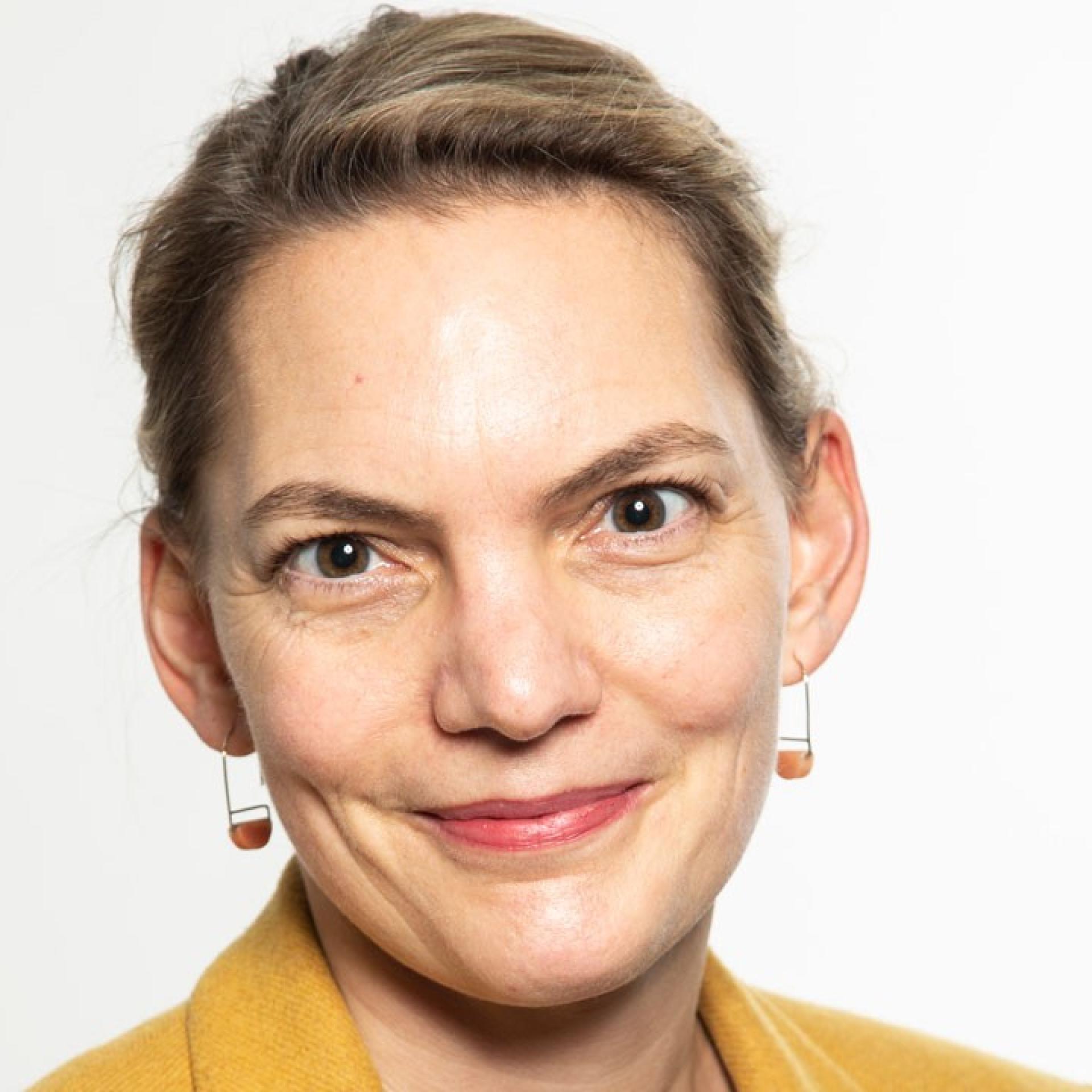Julia Kunkel, new director of the Food Design Lab
Her leitmotiv? To be the source of future visions. Julia Kunkel is a 44 year old designer from Berlin, originally trained in product design. She worked for 17 years for major players in the food industry, product design and transport.
As an expert in global branding, she wishes to pass on her love of food design, her in-depth knowledge of branding, trends and the industrial world to students.
Julia Kunkel believes in sustainable food, respectful of the world and mankind, committed and in tune with our contemporary lifestyles. Interview with an enthusiast.
A love affair with food
Discovering food design in Spain
During an Erasmus trip to Barcelona, the young Julia discovered food design. She was fascinated by the universality and humanism inherent in this unique discipline. Indeed, the relationship with food concerns us all: it tells individual and global stories, illustrates the diversity of cultures and reveals our very personal, sensual and sensory relationship with food.
According to the designer, "humanity can be found around a table", which is why food design must be respected, revalued and promoted. During her thesis project at the Berlin University of the Arts in 2003, she created the brandBittersweet: a range of 12 sweets corresponding to 12 different moods.
Bittersweet: taste some joy or tenderness
Depending on the consumer’s emotional state and desires, they choose a candy to enjoy, with a purpose in mind. For example, if they are looking to cheer themselves up, feel soothed, be comforted or interact with someone, they will target a particular sweet. Each candy has a distinct mission and acts as an emotional amplifier. It stimulates the senses, entertains, invites sharing, consoles or delights. The candy needs to be used in a specific way in order to have an effect on the emotions.
Between 2003 and 2004, the Bittersweet brand was exhibited in art galleries in Berlin, Paris, Seoul and Milan. Nevertheless, the young designer had to convince people that food design deserved academic recognition. And even that food design could "act socially, be visionary, be human-centred, demonstrate method and be an intellectually demanding discipline."
17 years of creativity in the industry
Enivrance - Food and Drink Design Agency: the flair of the pre-Instagram era
Spotted by the trend agency Enivrance for her "new ideas and quirky concepts", Julia Kunkel headed for Paris. She worked there for three years on innovative food and cosmetic design and the creation of new consumer experiences. She analysed global trends in food and drink: "We did prospective design, i.e. a lot of scouting around the world to decode emerging signals and propose new concepts in convenience food. This was before the advent of Instagram!"
Carlin Creative Trend Bureau
For 4 years, she deepened her experience in more transversal and global subjects at Carlin Creative. Among her main missions were concept and service design consulting, which is based on the decoding of design trends specifically linked to the development of new products.
She worked on the monitoring of innovative materials and refined her artistic sensibility by creating colour ranges.
A long-term adventure with Peugeot
When Peugeot launched its design studio Peugeot Design Lab, she was asked to take on the position of Global Brand Designer/Manager. The challenges were the following: how to apply the methods of the car brand strategy and transform it into a design strategy for clients in the fields of rail transport, household appliances and lifestyle? How to create an identifiable brand in the highly competitive and inventive lifestyle sector?
She stayed at the Peugeot Design Lab for 7 years. The designer was also responsible for the artistic direction and creation of colours and materials for design and transport projects.
A passion for passing on knowledge and inspiring budding designers
"I love sharing ideas and teaching".
Fuelled by this wealth of diverse experience and eager to pass on her experience, Julia Kunkel turned to teaching. She says she is "very honoured to pass on what she has learned to the younger generation" and feels "a lot of joy!" In 2019, she became a senior lecturer at Rubika, School of Design, Animation and Video Games in Valenciennes. Then, attracted by the open-mindedness and interdisciplinary decompartmentalisation specific to the L’École de design Nantes Atlantique, she became director of the Food Design Lab in December 2020. "I liked́ the relevance and intelligence of the establishment with this organisation around major themes for the MDes: Food, Care, Digital, Media and City."
The Food design lab: 5 ways of exploring the food of tomorrow
The Pays de la Loire region has a fabulous wealth of foodstuffs, with land, sea, vineyards and cattle breeding. The food industry is also the leading industrial sector in the region. How does the Food Design Lab think it can position itself in relation to this abundance to concentrate on the essential? How does it act as an incubator for future visions?
1. Seeing far ahead
At the Lab, "we seek to provide visionary solutions to the following key questions: How can we make the food system more responsible through creativity and design? How can we transform technological innovation and food research into a fairer product or consumer service? How can we interact with the pedagogy and eating habits of everyone through design?"
2. Mixing up knowledge and disciplines
The Food Design Lab is intrinsically multidisciplinary and includes students, graphic designers, interior designers, product designers and motion designers. In terms of expertise, the Food Design Lab is constantly nourished by exchanges with sociologists, institutions, researchers, historians and engineers. It is also energised by its networks working in the fields of the food industry, household appliances, tableware and services.
The major issues inherent in tomorrow’s food sector are vital: "we are expected to address issues of food insecuritý, CSR, food waste, protein transition, zero waste, short circuit, or smart tech for the optimization of resource use. The students’ end of studies projects are very committed: for example, one of them is working on a kitchen concept dedicated to homeless people in urban areas. Another designer is studying the ecological impact of the climate on wine production with her project "How to enhance the value of the Muscadet terroir and its taste despite climatic instabilities?"
3. Taking action on the ground
The contexts of the Food Design Lab’s actions are varied: food in collective restaurants, edible territories in the city and in general, initiatives that reconcile short circuits and mass distribution. Their aim is to imagine our food in the future.
4. To develop 5 main topical missions
The Food Design Lab has identified́ priorities around which the teams will work.
- Stimulate research and the future vision of food that promotes eco-innovation ;
- Inspire local and national food industry actors;
- Strengthen the role of the designer and his/her involvement in the creation of tomorrow’s food through creativity and design thinking;
- Simplify and facilitate the design process and make users feel at ease. Design is at the service of people;
- Ensure educational transmission for future generations of designers.
5. Getting involved in 2021
The Food Design Lab will be honoring three major food design events in 2021. In May, a round table representing major food groups will bring out the vision of tomorrow’s culinary design and the framework for action of the Food Design Lab. This is the Food Design Vision Colloquium. In June, the ECOTROPHELIA competition will take place in Nancy and the Lab will participate with two groups of speakers.
Julia Kunkel has returned to her first love at the Food Design Lab: "I really feel like I belong. Helping to reveal the unique talents of each student, accompanying them with empathy in their search for their path, contributing to making an impact on the future: these are the things that drive me."
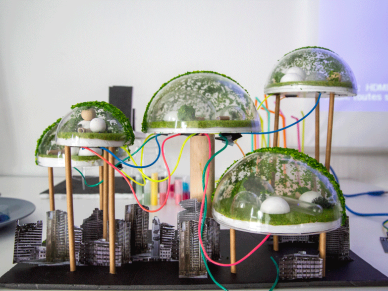
The Food Design Lab explores issues related to the changing nature of food systems and imagines global experiences centered on sustainable food.
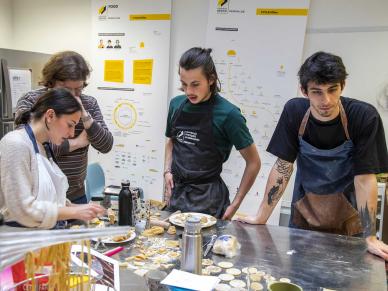
and publications
Food Design Lab conferences and publications
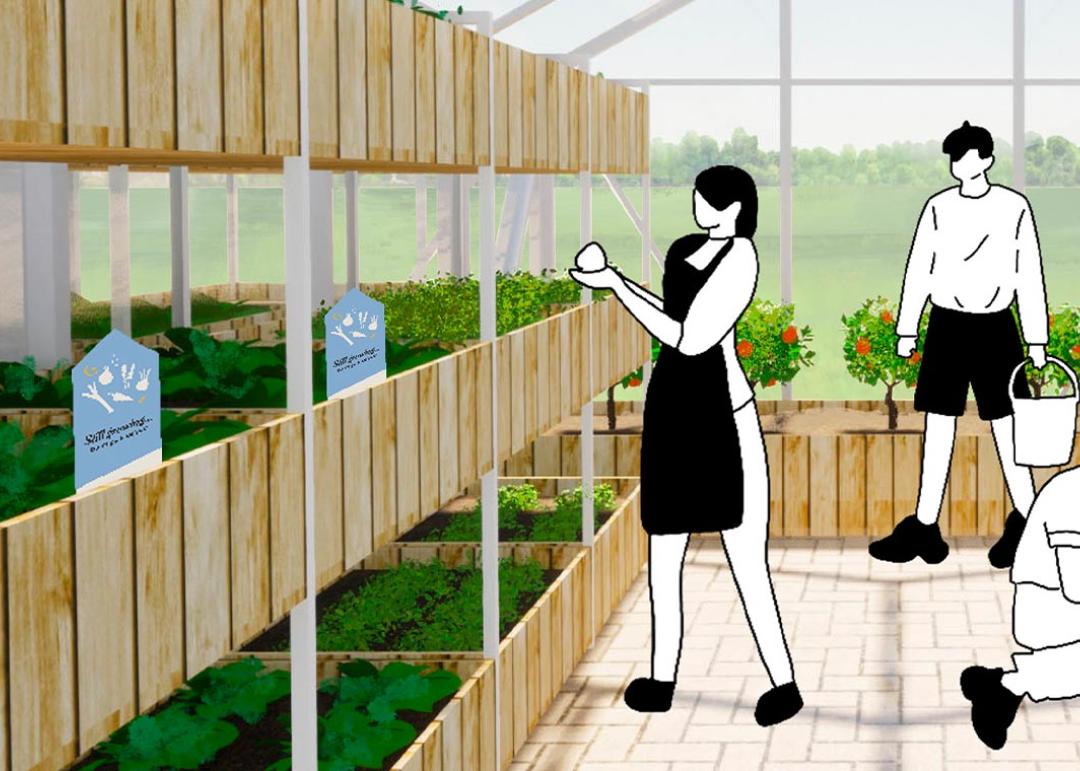
In our postgraduate studies in Food Design, designers explore and project future scenarios for food industry.
News

